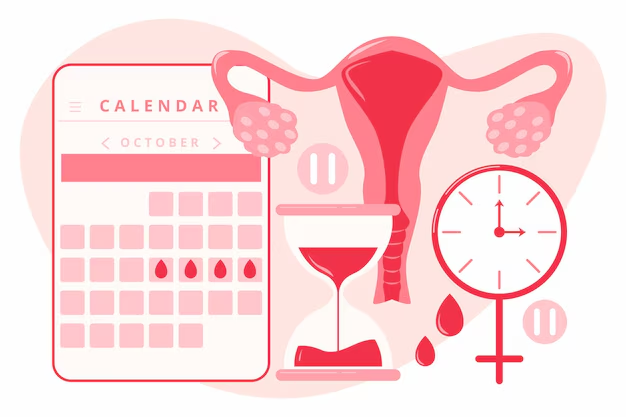Miscarriage Myths and Facts: First Trimester Risks

Miscarriage is a deeply emotional and challenging experience for many women, and it’s surrounded by numerous myths and misconceptions. These misunderstandings can lead to confusion, fear, and anxiety for women during their first trimester of pregnancy. In this blog, we will debunk common myths about miscarriage and share the facts to help you navigate this sensitive topic with knowledge and clarity.
Myth #1: Miscarriage is Always Caused by Something You Did
Fact:
One of the most common myths surrounding miscarriage is the belief that it happens because the mother did something wrong. Many women feel guilty when a miscarriage occurs, but it is essential to understand that most miscarriages are caused by factors beyond the mother's control. In fact, about 50-70% of miscarriages occur due to chromosomal abnormalities in the fetus, meaning the baby’s genes are not developing correctly, which is completely outside of the mother’s influence.
Miscarriages are most commonly a result of these genetic factors, and in many cases, there is no specific reason that can be identified.
Myth #2: Heavy Exercise Can Cause Miscarriage
Fact:
While it’s true that extreme physical activity can put additional stress on the body, moderate exercise during pregnancy is generally safe and beneficial. There is no direct evidence linking moderate exercise with an increased risk of miscarriage. Activities such as walking, swimming, and prenatal yoga are excellent choices during pregnancy.
It’s important to avoid overexertion, especially in the first trimester, but regular physical activity can help maintain overall health, reduce stress, and promote better circulation. Always consult your healthcare provider before starting or continuing an exercise routine during pregnancy to ensure it’s appropriate for you.
Myth #3: Stress Causes Miscarriage
Fact:
While stress can certainly have a negative impact on a woman's health, there is no direct evidence linking normal levels of stress with an increased risk of miscarriage. The emotional toll of pregnancy and potential miscarriage can be significant, but stress itself is unlikely to be the cause.
It’s important for expectant mothers to practice relaxation techniques, seek emotional support, and manage stress in healthy ways during pregnancy. However, stress alone is not a contributing factor to miscarriage.
Myth #4: If You’ve Had a Miscarriage, You’re Likely to Have Another One
Fact:
It is understandable to worry about future pregnancies after experiencing a miscarriage, but most women who have had one miscarriage go on to have healthy pregnancies. In fact, the chances of having a successful pregnancy after a miscarriage are very high, with around 85% of women experiencing a healthy pregnancy in the future.
However, if you've had multiple miscarriages (three or more), it’s important to talk to your doctor, as there could be underlying health conditions that need to be addressed. Genetic factors, hormone imbalances, or structural issues with the uterus can sometimes contribute to recurrent miscarriages, and your healthcare provider may suggest additional testing to investigate potential causes.
Myth #5: You Can’t Prevent a Miscarriage
Fact:
Unfortunately, there’s no way to guarantee a pregnancy will be free of complications, but there are steps you can take to reduce the risks and promote a healthy pregnancy. These steps include:
- Maintaining a healthy lifestyle: Eating a balanced diet, avoiding alcohol, and limiting caffeine can all improve your chances of a healthy pregnancy.
- Taking prenatal vitamins: Folic acid is crucial in the early stages of pregnancy and can help reduce the risk of birth defects and other complications.
- Managing chronic conditions: Conditions such as diabetes, thyroid disorders, and high blood pressure should be managed before and during pregnancy.
- Regular prenatal care: Early and consistent prenatal visits allow your doctor to monitor the health of both you and your baby.
While these steps can help reduce the risk of complications, it’s important to remember that some factors, such as chromosomal abnormalities, are out of your control.
Myth #6: Miscarriages Always Happen Suddenly
Fact:
While some miscarriages can occur suddenly with heavy bleeding or cramping, many women experience signs and symptoms before a miscarriage actually happens. Early miscarriage symptoms can include:
- Light bleeding or spotting
- Mild cramping
- Back pain
- A decrease in pregnancy symptoms (like nausea or breast tenderness)
In some cases, these symptoms may be a sign of a threatened miscarriage, which may not lead to pregnancy loss. It’s important to contact your healthcare provider if you experience any of these symptoms, as they can provide guidance, support, and determine whether any further action is needed.
Myth #7: Miscarriage is a Rare Occurrence
Fact:
Miscarriages are actually quite common, especially in the first trimester. It is estimated that up to 20% of pregnancies end in miscarriage, and some studies suggest the rate may be even higher, particularly if early pregnancies are not confirmed through blood tests or ultrasounds. Many miscarriages occur before a woman even knows she’s pregnant, which is why early miscarriages often go unnoticed.
While this may feel distressing, it’s important to know that most women who experience a miscarriage can conceive again and have healthy pregnancies in the future.
Myth #8: Bed Rest Will Prevent Miscarriage
Fact:
While bed rest was once commonly recommended after a miscarriage or during pregnancy complications, current research has shown that it is generally not effective in preventing miscarriage. Resting does not change the outcome of a pregnancy that is likely to end in miscarriage due to chromosomal abnormalities or other genetic factors.
If you have been prescribed bed rest by your healthcare provider due to specific medical conditions, such as preeclampsia or cervical insufficiency, it's important to follow those instructions. However, in most cases, maintaining a moderate level of activity is perfectly safe and can help reduce the emotional strain of bed rest.
Myth #9: You Shouldn’t Talk About Your Miscarriage Until You’re Past the First Trimester
Fact:
It’s common for women to feel a sense of shame or fear of judgment when experiencing a miscarriage, leading them to keep it private. However, miscarriage is more common than many people realize, and talking about your experience can provide emotional relief and help you process your feelings. Many women find that sharing their experiences with close friends, family, or support groups can help them heal.
It’s important to create a supportive environment where you feel comfortable discussing your experience, and to seek professional help, such as counseling or therapy, if necessary.
Related Articles

he Best Time to Get Pregnant: Understanding Your Ovulation Cycle

Baby development at 17 weeks

Baby development at 37 weeks

How to Track Your Menstrual Cycle and Why It's Important

Baby development at 32 weeks

What to Expect During Your First Period

Baby development at 38 weeks

Baby development at 8 weeks